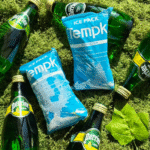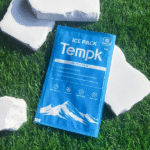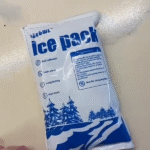Sacos isolados: Pioneirismo no controle de temperatura na logística moderna
Os sacos isolados surgiram como ferramentas indispensáveis para manter a estabilidade precisa da temperatura em todas as indústrias, da entrega de alimentos ao transporte farmacêutico. À medida que aumentam as expectativas dos consumidores em termos de frescura e segurança, os avanços na ciência e no design dos materiais estão redefinindo o que as bolsas térmicas isoladas podem alcançar. Tempk, um pioneiro em soluções térmicas, aproveita tecnologia de ponta para produzir bolsas isoladas que estabelecem novos padrões de eficiência, durabilidade, e sustentabilidade.

A Ciência do Isolamento Térmico
Os sacos isolados operam com base em princípios de minimização da transferência de calor através de barreiras multicamadas. Projetos de alto desempenho normalmente incorporam:
-
Concha externa: Durável, tecidos resistentes à água como náilon ou poliéster para proteção externa.
-
Núcleo de isolamento: Espuma de célula fechada, aerogel, ou materiais reflexivos (por exemplo, folha de alumínio) para bloquear o calor condutivo e radiante.
-
LINHO INTERNO: Qualidade alimentar, revestimentos antimicrobianos para higiene e facilidade de limpeza.
Ao reter bolsas de ar e refletir o calor externo, esses sacos retardam significativamente a troca de temperatura. Tempk Tecnologia ThermoGuard® aprimora esse processo com painéis selados a vácuo, reduzindo a transferência de calor por 55% em comparação com designs convencionais.
Inovações em materiais impulsionam o desempenho
As bolsas térmicas isoladas da Tempk se destacam por meio de avanços proprietários:
-
Isolamento EcoFlex®: Um peso leve, espuma à base de plantas com 40% maior resistência térmica do que alternativas à base de petróleo.
-
Selos de bloqueio triplo: Zíperes reforçados magneticamente e tiras de compressão eliminam o vazamento de ar, estendendo a retenção de resfriamento/aquecimento em até 12 horas.
-
Compartimentos modulares: Divisórias personalizáveis para otimizar espaço para bolsas de gelo, recipientes para alimentos, ou suprimentos médicos.
Estas inovações abordam desafios comuns como o acúmulo de condensação, vida útil limitada, e controle de temperatura inconsistente.
Aplicações versáteis em todos os setores
Sacos isolados atendem a diversas necessidades:
-
Entrega de alimentos: Mantenha as refeições quentes ou frias durante 8+ horas, reduzindo o desperdício na logística de última milha.
-
Transporte Farmacêutico: Mantenha 2–8 ° C para vacinas, insulina, e biológicos, garantindo a conformidade regulatória.
-
Compras de supermercado: Preserve produtos perecíveis como laticínios e carnes durante viagens prolongadas.
-
Aventuras ao ar livre: Ideal para acampar, piqueniques, ou dias de praia, com designs robustos resistentes a perfurações e exposição UV.
As bolsas da Tempk passam por testes rigorosos em condições extremas (-25° C a 70 ° C.), garantindo confiabilidade em todos os ambientes.
A vantagem competitiva de Tempk: Redefinindo os padrões da indústria
A Tempk domina o mercado através destas vantagens principais:
-
Retenção térmica estendida: Até 24 horas de estabilidade de temperatura, superando os concorrentes por 35%.
-
Construção ecológica: Sacos feitos de 100% plásticos oceânicos reciclados e revestimentos biodegradáveis.
-
Recursos centrados no usuário: Alças ergonômicas, bases à prova de vazamentos, e interiores laváveis à máquina.
-
Segurança certificada: Materiais em conformidade com FDA e UE, garantindo segurança alimentar e de nível médico.
Ao priorizar a inovação e a sustentabilidade, Tempk reduz o impacto ambiental ao mesmo tempo que oferece desempenho incomparável.
Sustentabilidade: Alinhando Inovação com Saúde Planetária
As eco-iniciativas de Tempk incluem:
-
Produção neutra em carbono: Fábricas alimentadas por energia renovável e programas de compensação de carbono.
-
Programas de Economia Circular: Serviços gratuitos de reciclagem para sacos e bolsas de gelo em fim de vida.
-
Fabricação sem água: Os processos a seco reduzem o uso de água 65% em comparação com as médias da indústria.
Esses esforços ressoam entre consumidores e empresas ecologicamente conscientes que buscam cumprir as metas ESG.
Conclusão
Sacos isolados são facilitadores críticos da logística moderna sensível à temperatura. As bolsas térmicas isoladas ThermoGuard® da Tempk exemplificam a fusão de materiais avançados, projeto inteligente, e mordomia ambiental. Seja para entrega comercial, assistência médica, ou uso pessoal, Tempk garante que os produtos permaneçam frescos, seguro, e sustentável – provando que o desempenho e as práticas amigas do planeta podem coexistir.























